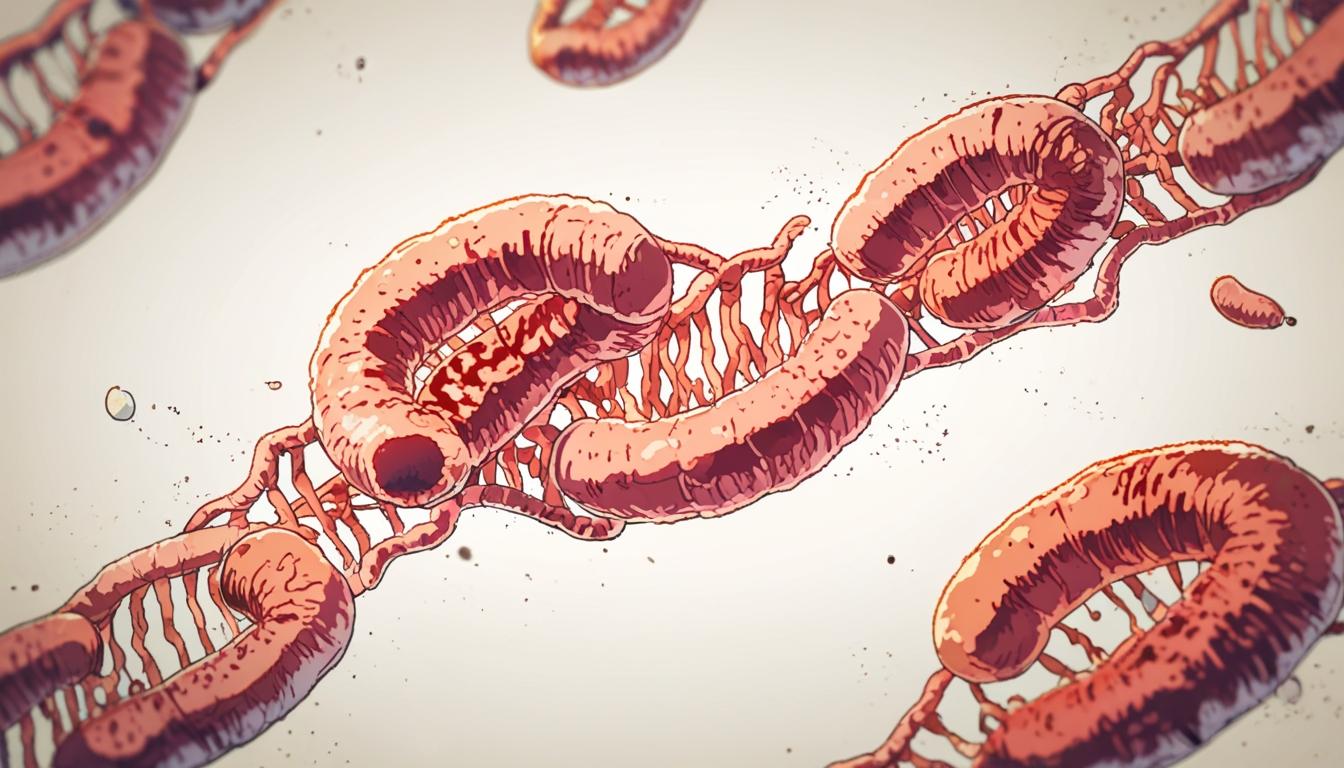Scientists have identified a potential cause behind the rising incidence of bowel cancer among younger people, with evidence pointing to a bacterial toxin produced by certain strains of E. coli. This finding comes from an international research team, including experts from the UK and United States, supported by Cancer Research UK.
The toxin, known as colibactin, is produced by specific E. coli bacteria strains and is capable of inducing distinct DNA mutations in bowel cells. Unlike the strains of E. coli associated with infections such as diarrhoea, this variant leaves behind a unique genetic signature. According to the study led by the University of California San Diego (UCSD) and published in the journal Nature, exposure to colibactin during early childhood may imprint mutations on bowel cell DNA, potentially increasing the risk of developing bowel cancer before the age of 50.
Bowel cancer rates in younger adults, especially those aged 25 to 49, have seen a notable increase in recent decades. Research data from Cancer Research UK show a 52% rise in incidence rates among this age group since the early 1990s, with approximately 2,600 new cases annually in the UK for individuals aged 25-49, and about 44,100 cases across all ages. England has observed one of the steepest increases globally, with rates climbing an average of 3.6% per year up to 2017 in the younger demographic.
The study assessed 981 colorectal cancer genomes from patients with both early-onset (under 40 years) and late-onset disease across 11 countries. The researchers discovered that colibactin-related DNA mutation patterns were 3.3 times more prevalent in younger patients compared to those diagnosed after age 70. Additionally, these mutation signatures were more common in countries with higher rates of early-onset bowel cancer, suggesting a geographical correlation.
Professor Ludmil Alexandrov of UCSD, senior author of the study, explained: “These mutation patterns are a kind of historical record in the genome, and they point to early-life exposure to colibactin as a driving force behind early-onset disease.” Marcos Diaz-Gay, the study’s first author, added, “When we started this project, we weren’t planning to focus on early-onset colorectal cancer... one of the most interesting and striking findings was how frequently colibactin-related mutations appeared in the early-onset cases.”
The research further revealed that colibactin-related mutations account for around 15% of APC driver mutations, which are early genetic changes implicated in promoting cancer development. According to Professor Alexandrov, acquiring one such mutation by age ten could accelerate the timeline for colorectal cancer, potentially leading to diagnosis at 40 instead of 60.
The study is part of the Cancer Grand Challenges Mutographs team initiative funded by Cancer Research UK. Efforts are underway to develop early detection methods based on stool sample analysis for colibactin-related mutations. Dr David Scott, director of Cancer Grand Challenges, commented: “Many early-onset colorectal cancer patients appear to have been exposed to a toxin, called colibactin, produced by some strains of the bacteria E. coli in early life. It’s unclear how the exposure originates, but we suspect that a combination of factors – including diet – may intersect during a crucial phase in the development of the gut microbiome.”
Professor Sir Mike Stratton, leader of the Mutographs team at the Wellcome Sanger Institute, noted: “Our research has allowed us to generate the hypothesis that the presence of colibactin leads to an increased number of mutations in colon cells, which then causes a greater risk of colorectal cancer at an early age. If this turns out to be correct, we can explore preventive measures such as tests that tell us if the toxin, or the bacterium that makes it, is present, and finding ways to eliminate them from our bodies at a young age.”
While acknowledging known factors such as diet and lifestyle contribute to colorectal cancer risk, the research opens new avenues for understanding and potentially reducing early-onset cases. Additional Cancer Grand Challenges teams are investigating the microbiome and environmental influences to better comprehend the global rise in bowel cancer among younger populations.
Source: Noah Wire Services
